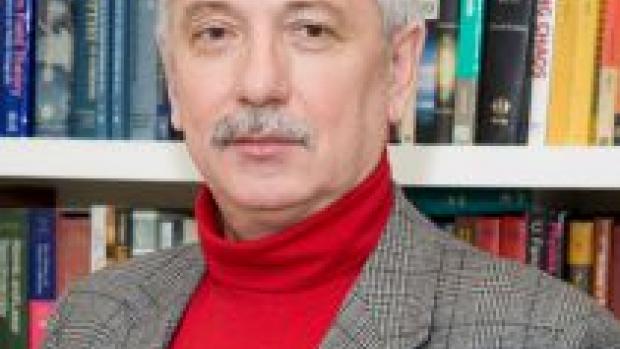Tandon’s Kurt Becker Talks Smart Cities with Fellow Experts from across New York

Recently, City & State held “On Technology 2016,” its fifth annual forum on how technology is changing the way New York City works.
Among the participants was Vice Dean for Research, Innovation and Entrepreneurship Kurt Becker, who provided a look at how NYU’s incubator system was contributing to New York’s development as a smart city—defined, according to the event’s keynote speaker, mayoral counsel Maya Wiley, as one that “creates sustainable economic development and high quality of life by excelling in multiple key areas—including economy, mobility, environment, people, and government—through strong human capital, social capital, and Information and Communications Technology infrastructure.”
Speaking on a panel that also featured Manhattan Borough President Gale Brewer, State Senator Kevin Parker, and NYC Economic Development Corporation Executive VP Kathleen Warner, Becker explained that the university’s three incubators—located in DUMBO, downtown Brooklyn, and on Varick St. in lower Manhattan—are helping make the city one of the nation’s fastest-growing tech hubs and have been declared tax-free zones as part of the governor’s innovative START-UP NY program to foster job growth and economic development. “While no one geographic region can excel in every technology area,” he said, “New York is certainly among the top in the country and is right now exceeding even Silicon Valley in the rate of startup creation and in the amount of venture capital being invested.” So quickly is the reputation of the city spreading among savvy tech entrepreneurs, he said, that EV-Box, a Netherlands-based company that makes charging stations for electrical vehicles, had chosen to set up shop here rather than on the West Coast, where those vehicles are much more common.
“We are committed to engaging in fruitful public and private partnerships,” Becker added. “Companies can benefit from groundbreaking NYU research and have the advantage of all the other amenities and assets the city offers.”
Other panelists praised Tandon, with Senator Parker lauding the incubator system’s focus on sustainability initiatives and contributions to what he called the “green-collar economy,” and Borough President Brewer hailing the school’s devotion to educating next-generation technologists from underrepresented groups—an agenda that will help bridge the income gap among the city’s residents. Tandon, as she acknowledged, has long provided a solid upward path to members of minority groups, financially disadvantaged students, those who are the first in their families to attend college, and others who might not previously have considered a career in a STEM-related field a possibility. And the school’s commitment to those groups starts well before freshman year; through its Center for K12 Stem Education, thousands of New York City schoolchildren and their teachers have gained access to enriching summer programs and exposure to cutting-edge research.
Those efforts are especially important keys to being a smart city, according to Wiley. Referring to the concept of disruptive technologies, she asserted that truly smart cities are those in which inequality itself is disrupted.




